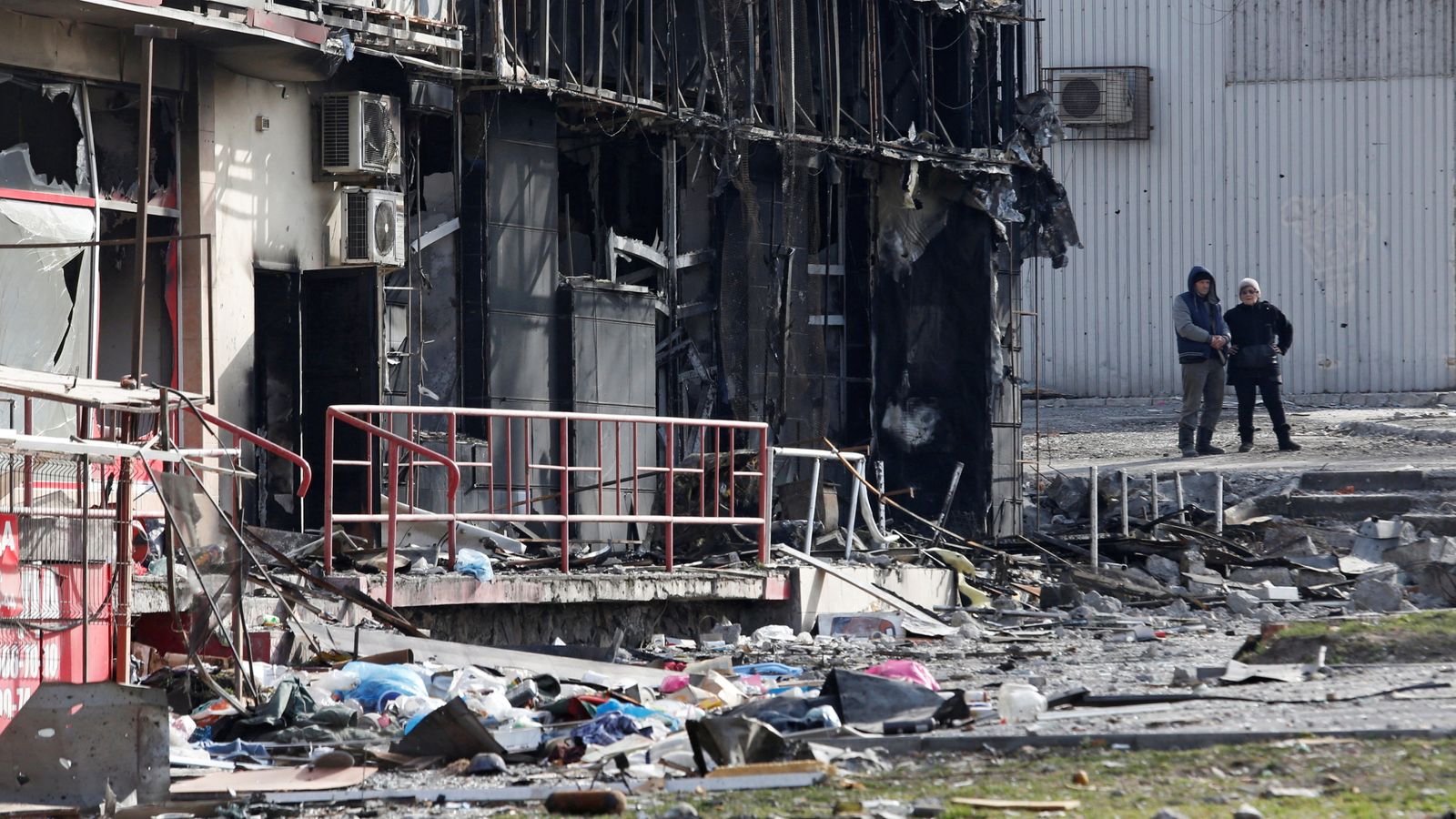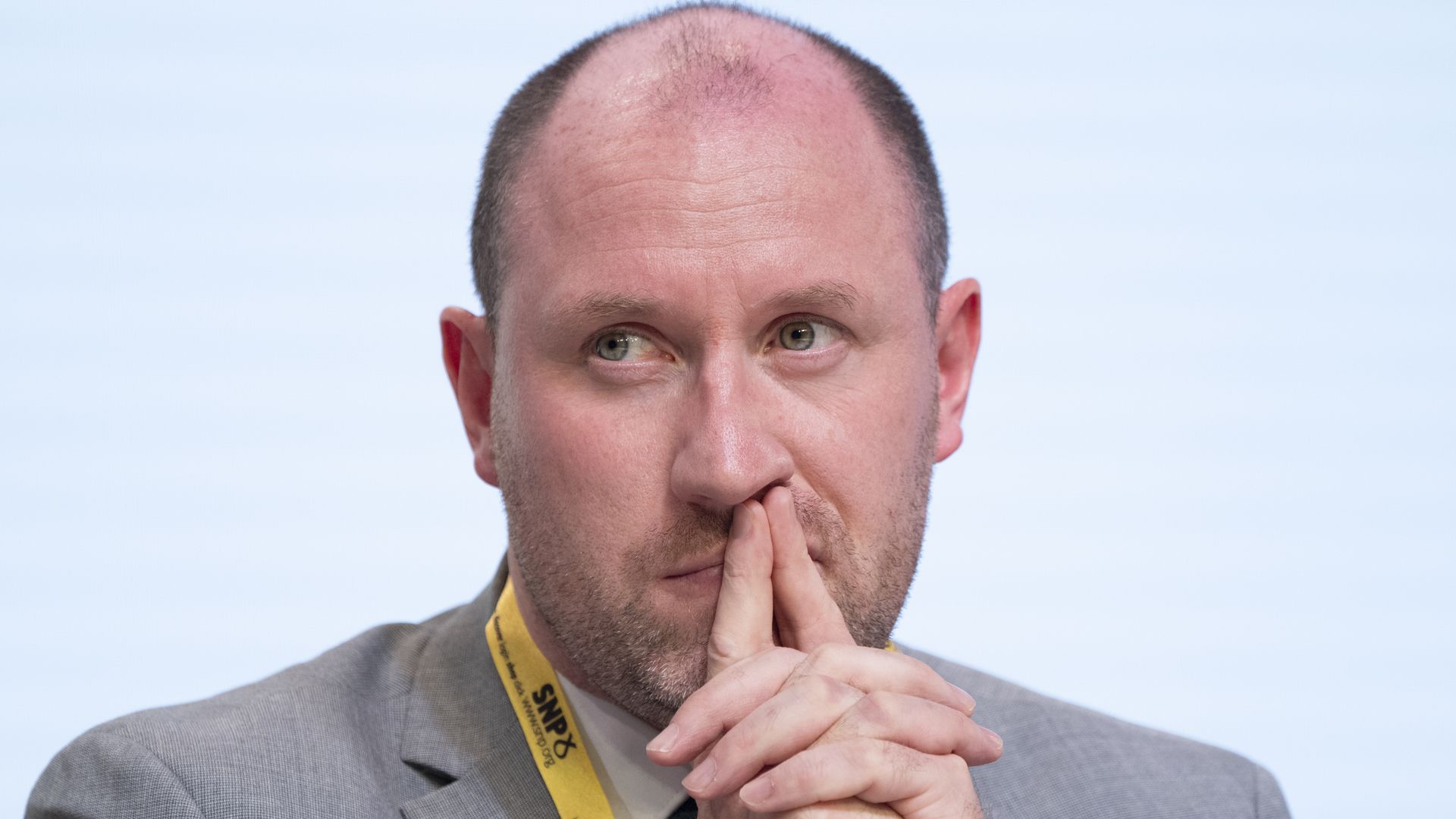The lives of tens of thousands of people with HIV in Ukraine are now at risk as the war has stopped lifesaving drugs reaching those who need them, an expert on the ground has told Sky News.
Andriy Klepikov, from the Alliance for Public Health, told Sophy Ridge on Sunday that “59,000 people are on antiretroviral therapy in areas affected by the war, and less than 40% managed to move outside of the war zones so we are talking about tens of thousands of people at risk”.
More than 260,000 people in Ukraine have HIV, and some estimates are as high as 1% of the entire population carry the virus, one of the highest prevalence rates in the world outside Africa.
Follow live updates on the war in Ukraine
While taking highly effective modern drugs known as antiretroviral therapy, people with HIV will typically live full, healthy lives and cannot pass on the virus – but the war has disrupted supplies of these crucial medicines.
Ukraine also has a very large number of people with tuberculosis (TB) that is often drug resistant and TB is the leading cause of death for those with HIV in the country.
Mr Klepikov, speaking from Lviv after being forced to leave the capital Kyiv, said: “People with HIV and TB were already vulnerable in normal life but during the war their vulnerability increased many times, and most of the people living with HIV are actually located in the eastern and southern part of Ukraine, affected by war the most.”
First woman to be ‘cured’ of HIV with stem cell blood cancer treatment, say US scientists
COVID-19: South African doctors fear new coronavirus variants could evolve in untreated HIV population
World Aids Day: Government pledges millions to end HIV infections in England by 2030
He told Sky News of the deaths of two volunteers trying to continue delivering treatment during the Russian invasion.
He said: “It is a very challenging task because in the areas directly affected by the war over 100,000 people with HIV are living, 59,000 out of them are receiving antiretroviral treatment, so it’s not only governmental agencies and medical facilities but NGOs like mine delivering ART drugs to the patients, it’s difficult and very challenging as we are continuing to do this even in occupied territories.
“Unfortunately it is dangerous, just a couple of days ago our partner organisation faced a situation where a van with volunteers delivering medicine and humanitarian aid was shelled and two people unfortunately died.”
Ukraine has the second largest HIV epidemic in Eastern Europe and health services were already struggling before the war but in many places have now collapsed completely.
Please use Chrome browser for a more accessible video player
Professor Nana Poku, chair of Frontline AIDS, said: “The conflict in Ukraine is already disrupting access to HIV treatment in the here and now. People living with HIV may have only a few weeks remaining of the medication they need to stay healthy during this period of intense turmoil and danger.”
The besieged coastal city of Mariupol is a particular concern, where almost 5,000 people were believed to be living with HIV in Ukraine’s tenth biggest city. Healthcare facilities including HIV treatment and testing centres have been destroyed as part of Russia’s relentless bombardment of the city.
The Alliance for Public Health used to provide HIV testing and access to drugs, helping more than 700 people with HIV services in the city before the war. It has now had to leave the devastated area and lost contact with everyone it had been working with.
Andriy Klepikov, the organisation’s executive director, said “unfortunately Russian forces don’t allow us to go in”.
Follow the Daily podcast on Apple Podcasts, Google Podcasts, Spotify, Spreaker
Kyrylo, a project co-ordinator from an HIV testing centre, said: “In the first days of the war the only blood bank in the city was destroyed.
“I used my car to evacuate AIDS-related treatment drugs from the AIDS centre, and we organised a dispensing site at a doctor’s home. The next day, the hospital was bombed to dust.”
The Red Cross is currently trying again to reach Mariupol with aid supplies and told Sky News: “The ICRC team departed Zaporizhzhia this morning. They are spending the night en route to Mariupol and are yet to reach the city.”





